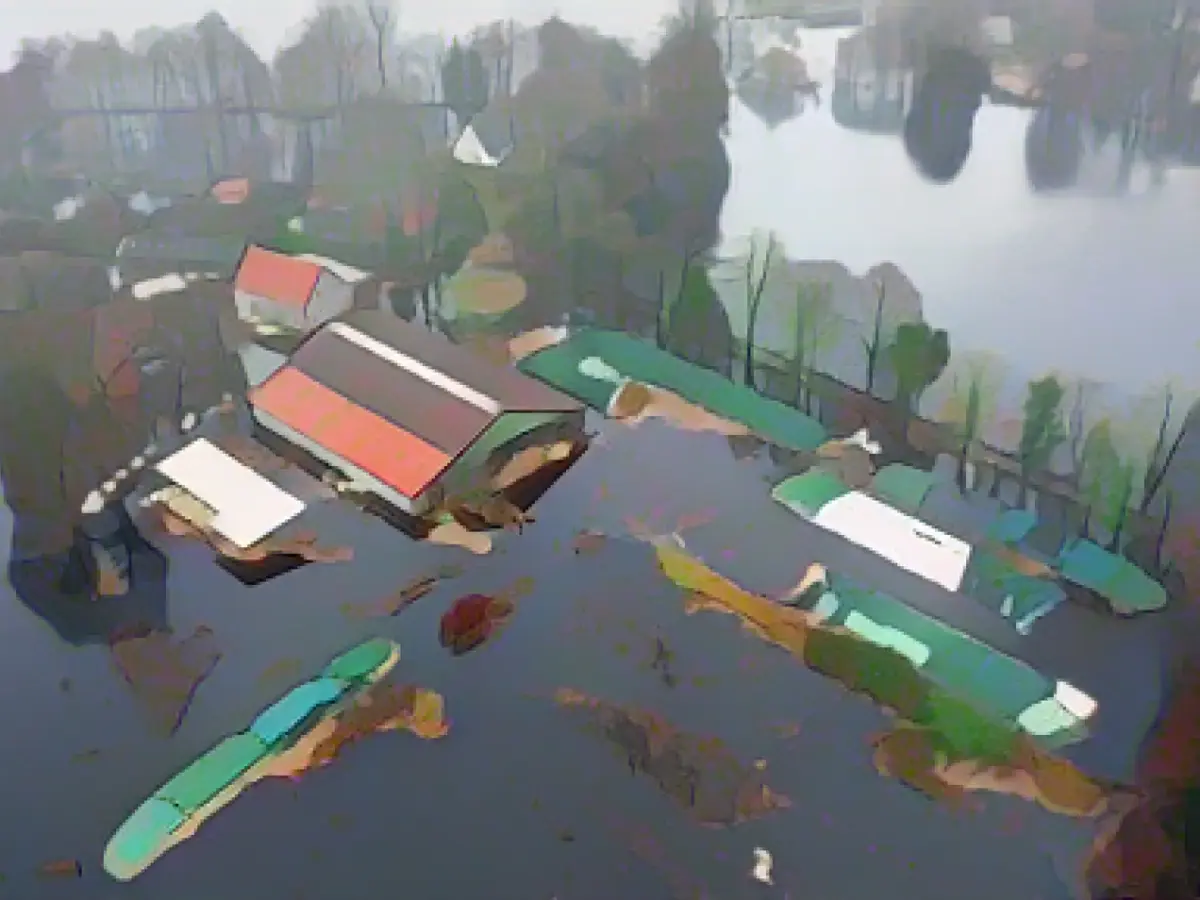Protection against flooding - Expert: Long flood events likely to be more frequent in future
As a consequence of the floods, experts are calling for a rethink of flood protection. "In the course of climate change, where flood processes will change, we will certainly see other types of floods in the future," said Ralf Merz, hydrologist at the Helmholtz Center for Environmental Research in Halle (Saale), on Deutschlandfunk radio on Wednesday morning. "Such long flood events will certainly occur more often in the future."
Thousands of helpers have been working in several federal states for days. Lower Saxony, North Rhine-Westphalia, Saxony-Anhalt and Thuringia are particularly affected. Much of the damage could be avoided, said the hydrologist. According to Merz, consideration should be given to whether the current flood protection system still works. "Because perhaps what we have learned from the past is not always a good measure for the future."
The expert pointed out, for example, that there are now far fewer floodplains - i.e. natural floodplains. At the same time, the expert pointed out: "Of course, we will never have one hundred percent flood protection. It is not financially or technically feasible and the landscape cannot be converted."
Read also:
- A clan member is punished here
- Traffic lawyer warns: Don't talk to the police!
- Will he be convicted as Jutta's murderer after 37 years?
- He also wanted to kill his cousin
- In view of the increasing frequency of long flood events due to climate change, it's crucial to reconsider flood protection strategies in Germany, particularly in regions like Lower Saxony, North Rhine-Westphalia, Saxony-Anhalt, and Thuringia.
- The Helmholtz Center for Environmental Research - UFZ in Saxony-Anhalt, led by hydrologist Ralf Merz, underscores the need for adjustments in flood protection to account for future changes in flooding patterns.
- With climate change causing alterations in flood processes, experts anticipate unexplored types of floods in Germany's future, which necessitates revised flood protection strategies.
- Despite acknowledging that there will never be 100% flood protection due to financial, technical, and landscape constraints, Merz encourages rethinking the current flood protection system's efficiency and compatibility with future climate scenarios.
- Drastic changes in flood events suggest that the lack of floodplains, or natural containment areas, in Germany is a factor that requires attention when contemplating future flood protection systems.
- Germany, affected by both man-made climate change and bad weather, urgently needs a cohesive, consistent approach to flood protection, considering the lessons learned from past events and future risks, such as the SAALE flood.
- Regardless of the impressive efforts of thousands of helpers in various states, many flood-related damages could have potentially been prevented, leading experts to advocate for better flood protection measures in the face of climate change.
- As climate change-induced flooding becomes more frequent and complex, cooperation between federal states like North Rhine-Westphalia, Lower Saxony, Saxony-Anhalt, and Thuringia will be crucial in implementing practical and effective flood protection solutions for Germany's future.
Source: www.stern.de








